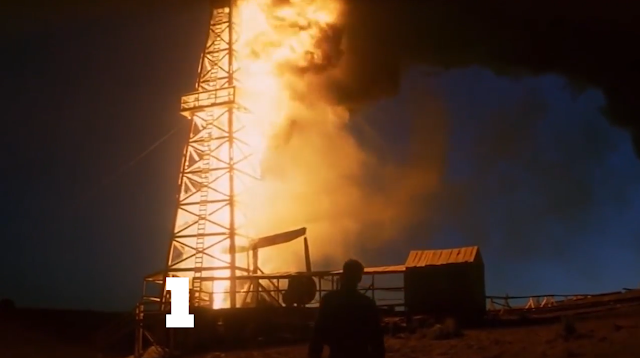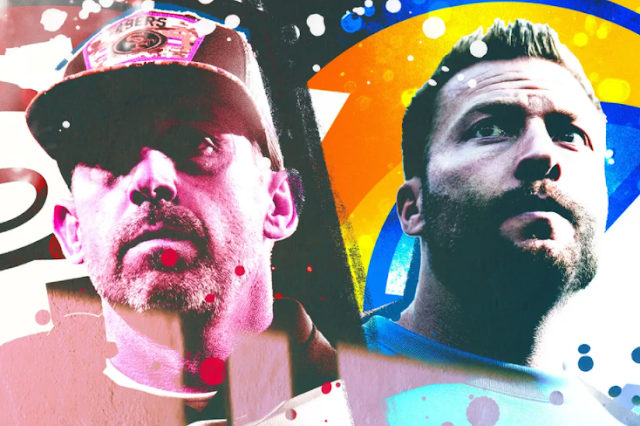
New York Times - "The 25
Best Films
of the
21st Century
So Far."
By Manohla Dargis and A.O. Scott
There Will Be Blood
Directed by Paul Thomas Anderson, 2007
“There Will Be Blood” tells the story of an American oilman, Daniel Plainview, who persuades the locals in a California ranching town to let him drill on their land. He also establishes an uneasy rivalry with a preacher, Eli Sunday, and the two men, each selling his own brand of faith, enact the timeless battle between God and Mammon – though who is on what side is not always clear.
Manohla Dargis
Paul Thomas Anderson’s “There Will Be Blood” is a 21st-century masterpiece about love, death, faith, greed and all the oil and blood gushing through the American 20th century. It distills a harrowing story through a prospector – played with demonic intensity by Daniel Day-Lewis – who pursues a savage, hollow dream. He embodies the best of the United States only to become the very worst of it.
The film offers a profound and deeply unsettling vision of the country, but it’s also a testament to one of this nation’s sublime achievements: the movies. The story creeps alive in 1898 with Plainview digging in a hole like a primordial creature, a sequence that invokes the dawn-of-man opener in “2001: A Space Odyssey.” A brilliant two and a half hours later, “There Will Be Blood” closes around 1927 by making good on its ominous title (it’s a gusher!) and nodding at “Citizen Kane,” a masterwork that ushered in a new American cinematic age.
A.O. Scott
While I am endlessly fascinated by what this movie is about – the dynamic, infernal spirit of American capitalism; the dialectic of faith and greed; the invention of California; the melodrama of modern masculinity – I am perpetually astonished by what it is. It is stranger than any of its themes, mightier than its influence and bigger than any of the genres it explores.
That opening sequence lasts almost 15 minutes before the first line of dialogue is uttered, and it sets the table (or stirs the milkshake) for the many bravura set pieces that follow, like the explosion of the drilling rig midway through. The grandeur of Mr. Anderson’s vision is matched by the precision of his technique. At no moment do you doubt that anything happened exactly how he is showing it, even as he takes abundant liberty with the historical record and his literary source (Upton Sinclair’s novel “Oil!”). But you are also aware of his artistic self-confidence, and the way he has marshaled the talents of his cast and collaborators (notably the cinematographer Robert Elswit and the composer Jonny Greenwood) in the service of his ideas.
I never tire of thinking about “There Will Be Blood.” But every time I watch it, I find it outruns all my thoughts. Not many films do that.
Dargis
It’s still fascinating to see how Mr. Anderson drew from two traditions to make the film: classical Hollywood cinema and European art film. “There Will Be Blood” is as pleasurable – and rewatchable – as an old-studio masterwork like “The Big Sleep” and his impeccable craft is of course one reason. Yet much as Martin Scorsese and Francis Ford Coppola did in their greatest movies, Mr. Anderson took all that he’d learned from Hollywood to create work of radical, intensely personal vision.
It’s a creation story about love and labor – Plainview’s and Mr. Anderson’s – one tragic, the other glorious. Among everything else that “There Will Be Blood” takes on is a question that rests, I think, at the heart of the United States: how could something as astonishing as the movies (or democracy) emerge amid so much horror?
Scott
And therefore, like so many films about ambition and enterprise, it’s to some extent an allegory of its own making. Not that Plainview is in any literal way Mr. Anderson’s alter ego: he’s a creature of his own time, a self-made man from the American heartland. He’s both demon and demigod, able to tap into the essence of the earth itself and driven to dominate and corrupt his fellow men – Mephistopheles and Faust rolled into one. A movie big enough to contain him could only be the greatest of its time.























